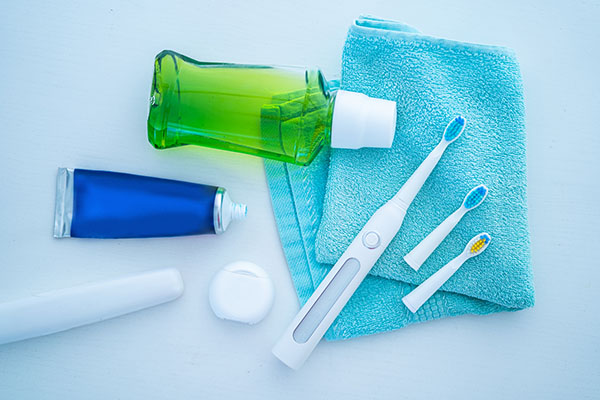General Dentistry Tips to Prevent Bad Breath

General dentistry refers to routine oral health care, whether that be oral hygiene or preventive measures, such as keeping bad breath at bay. Nobody wants to have bad breath, and more often than not, it is easily preventable. General dentists often recommend a few different things, which can go a long way in maintaining a healthy mouth that does not produce foul odors. Keep reading to find out more!
How to prevent bad breath
Outlined below are a few tips that are recommended in general dentistry for preventing bad breath. These tips should be reviewed and considered by anyone struggling to maintain a fresh mouth.
1. Brush after every meal
In general dentistry, it is typically recommended to brush the teeth at least twice a day, once being in the morning and the second time being at night. However, individuals that want to prevent bad breath may want to brush after eating each time. Left behind food particles can cause bad breath as some foods are more odorous than others. Brushing the teeth whenever food touches them can help to prevent any foul odors.
2. Avoid certain foods
Certain foods are extra odorous, like onions and garlic. When wanting to prevent bad breath, it is recommended to eat foods that are not extremely potent as they can leave strong odors in the oral cavity, which may be difficult to get rid of.
3. Never skip flossing
Flossing is an important step of every oral hygiene routine; however, it also keeps bad breath away. When food particles get stuck in between the teeth, bacteria can start to form, which can let off bad odors in the oral cavity, thus leading to bad breath. While it is not necessary to floss after every meal, it can be helpful in preventing bad breath. Some general dentists recommend using real floss once a day and then using the handheld picks after every meal.
4. Use mouthwash or saltwater
Another great way to prevent bad breath is by rinsing with mouthwash or saltwater. Some mouthwashes can be extremely alcohol-based, which can result in staining of the teeth or irritation of the soft tissues. However, for the most part, a quick rinse is a good way to keep bad odors away. If the alcohol base is too strong, general dentists recommend saltwater, which is completely harmless and can be easily mixed together at home. The salt kills any bacteria within the oral cavity, which can help prevent bad odors.
Talk to a general dentist
If all else fails, talking to a general dentist is the best thing to do. General dentistry practices are able to thoroughly evaluate individuals with bad breath to determine what the source may be. The cause of bad breath is often what can determine the best course of action. To find out more about preventing bad breath or to get scheduled with a general dentist, reach out today.
Request an appointment here: https://www.508dentist.com or call 508 Dentist at (508) 301-9909 for an appointment in our North Attleborough office.
Check out what others are saying about our dental services on Yelp: General Dentist in North Attleborough, MA.
Related Posts
3D dental scans are revolutionizing the way dentists diagnose and treat a wide range of oral health conditions. Unlike traditional X-rays, 3D dental scans provide a detailed, three-dimensional view of the teeth, jaw, and surrounding structures, enabling more accurate diagnoses and precise treatment planning. This advanced imaging technology is becoming vital in modern dentistry, enhancing…
Root canal therapy can treat and preserve natural teeth affected by deep tooth decay, infection, inflammation, or traumatic injury. The treatment focuses on removing the compromised tissue within the tooth, protecting surrounding teeth, and maintaining long-term oral health. That way, patients can avoid having to go through the trouble of getting tooth replacements that require…
People with missing teeth can benefit from getting implant supported dentures. These appliances can help improve smiles and oral health. Some people often find them to be more comfortable compared to conventional dentures. But after getting them, it is crucial for people to do all they can to promote healing. Following the dentist's instructions very…
Aesthetic dentistry is something that many could benefit from when it comes to dental treatment. Much like a master carpenter, aesthetic dentistry combines the underlying practice of traditional dentistry with the artistry of creating a beautiful smile. However, aesthetic dentistry is not just about making one's smile gorgeous. Instead, it also aims to make sure…
